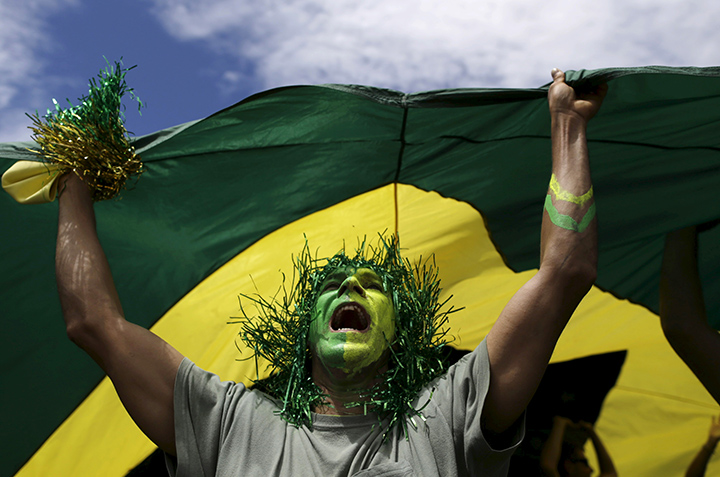 March 4, 2016, will go down in Brazilian history books as the end of the Lula era. On this date, iconic former President, Luiz Inácio Lula da Silva, was taken into police custody after being accused of allegedly receiving more than $8 million in bribes and undue advantages in connection with the corruption scandal involving the national oil firm, Petrobras.
March 4, 2016, will go down in Brazilian history books as the end of the Lula era. On this date, iconic former President, Luiz Inácio Lula da Silva, was taken into police custody after being accused of allegedly receiving more than $8 million in bribes and undue advantages in connection with the corruption scandal involving the national oil firm, Petrobras.
Although Lula, as the former President is more widely known, was not formally charged or arrested, the significance of the Brazilian Federal Police action cannot be understated. Lula had been, until very recently, the symbol of a new Brazil: economically powerful, politically relevant, socially just, and proud of its achievements. The events of March 4 cement the dissolution—at least for now—of this image, not only for Lula but for the country itself.
During the Lula era, from 2003 until around 2011, Brazil seemed to have finally found a sustainable path to progress. It grew on average 4-5 percent a year, suffering less and recovering faster from the global economic crisis of 2008 than more advanced economies. Lula’s social programs were credited with lifting almost forty million Brazilians out of poverty and reducing inequality. Brazil won bids to host the World Cup in 2014 and the Olympics in 2016. During this era, Brazilians quickly got used to a string of good news that seemed eternal. The country of tomorrow had finally arrived.
But while Lula’s contributions to a better Brazil were undeniable, a portion of those achievements were a matter of perception rather than reality. Some of the foundations for growth had been established before he was elected in 2002, and, as Brazilians recently discovered, they were not solid enough. Brazil is now immersed in large and concurrent political and economic crises. It is facing its biggest recession in at least twenty-five years, one in which every single economic indicator in the country is on a negative trajectory—be it employment, inflation, GDP growth, currency exchange rates, industrial productivity or consumption. Brazil’s political leaders are fighting for survival and cannot agree on any of the reforms the country needs. And let’s not forget the largest corruption scandal in the country’s history.
The anger and resentment many Brazilians felt with this turn of events were rapidly transformed into a backlash against Lula, his successor, President Dilma Rousseff, and the PT party. When the Federal Police took Lula’s statements on March 4, Brazilians responded with joy and celebrations. Markets, too, reacted with nothing less than euphoria—the real gained strength against the dollar, long-term interest rates went down, and the São Paulo stock market saw a spike in activity and value.
Celebrations are, however, short-sighted. Whether or not the Rousseff government falls, the Brazilian leadership will have to deal with the economic crisis whose roots go beyond the political circus engulfing the country. After the party, there will be the inevitable realization that hard economic and fiscal policy choices still have to be made.
Even worse, Brazilians still face a complete lack of viable political alternatives to lead the country back to growth. No name capable of making Brazilians coalesce around a new plan for the future has emerged, and nothing indicates that the implosion of the Brazilian political structure is leading to a better social pact going forward.
Furthermore, the extraordinary fall of the PT party in Brazil has left an indelible mark on leftist movements in Latin America. Winds of change have already been blowing throughout the continent; and while the replacement of failed leftist governments is far from a bad thing, the truth remains that the region’s political arena feels a bit reduced right now.
The end of impunity and the strength of the Brazilian institutions to prosecute corruption crimes is undoubtedly enviable. No one is untouchable anymore. It is, indeed, a watershed moment for the country, and in this sense, a true cause for celebration.
But the end of the Lula era also means the end of a dream—and right now we have nothing else to replace it.
Andrea Murta is an Associate Director in the Atlantic Council’s Adrienne Arsht Latin America Center.
Image: Demonstrators with a Brazilian flag protest against former Brazilian President Luiz Inácio Lula da Silva in front of his apartment in Sao Bernardo do Campo, Brazil, on March 4. (Reuters/Paulo Whitaker)
